How to install the app on iOS
Follow along with the video below to see how to install our site as a web app on your home screen.
Note: This feature may not be available in some browsers.
You are using an out of date browser. It may not display this or other websites correctly.
You should upgrade or use an alternative browser.
You should upgrade or use an alternative browser.
Pictures of Chinese people - 56 ethnic groups
- Thread starter ahfatzia
- Start date
ahfatzia
SENIOR MEMBER

- Joined
- Feb 22, 2012
- Messages
- 2,521
- Reaction score
- 0
Derung people 独龙族
The biggest holiday of year for the Derung is 努瓦独路娃-杀牛舞 slaughter a cow dance for the New Year. All the villages have the same holiday and usually everyone is involve







At the end they chop off the heads of the cows and save the horns. It's a great honor for a village to have the most horns through the years - translates more brave young men

The biggest holiday of year for the Derung is 努瓦独路娃-杀牛舞 slaughter a cow dance for the New Year. All the villages have the same holiday and usually everyone is involve







At the end they chop off the heads of the cows and save the horns. It's a great honor for a village to have the most horns through the years - translates more brave young men

Okemos
FULL MEMBER

- Joined
- Jan 15, 2013
- Messages
- 883
- Reaction score
- 0
Hui people 回族
Hongcun Village 宏村 in Anhui
Surrounded by fields of bright yellow from the canola flowers lies the ancient city of Hongcun. The village dates back to the Ming dynasty with some buildings still standing from that time, most of them seemed to be from the Qing though. Home to extremely successful Hui businessmen, away from their strong holds in the north, the influence of Hongcun and other ancient Anhui villages can be seen throughout the country in the architecture. The southern part of Anhui or the state of Hui as it was called before Anhui was formed was the home for a very successful business culture, that’s where it gets the second part of its name.



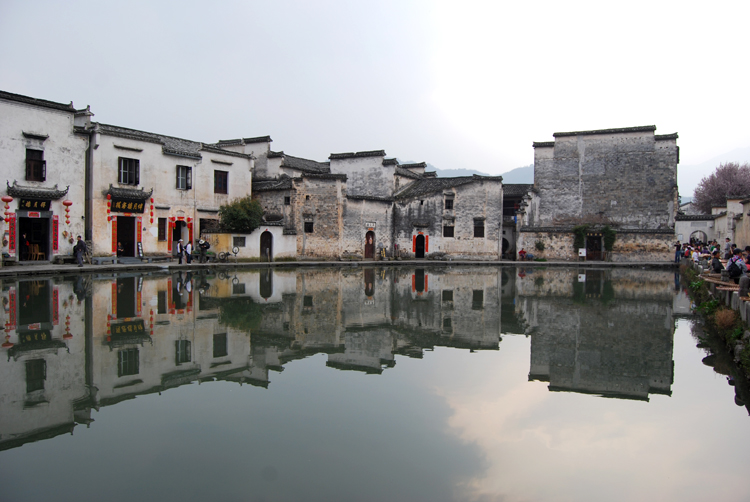
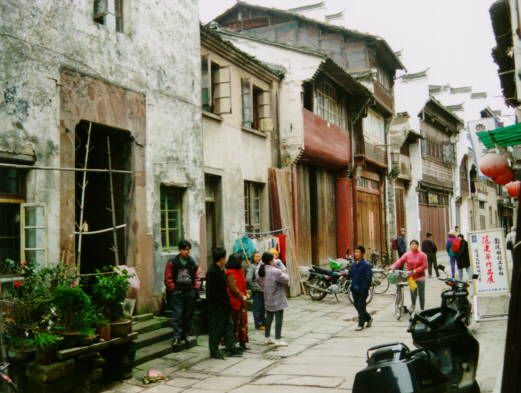
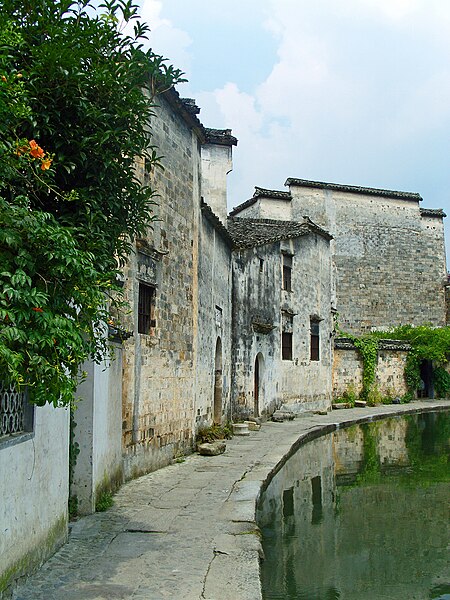
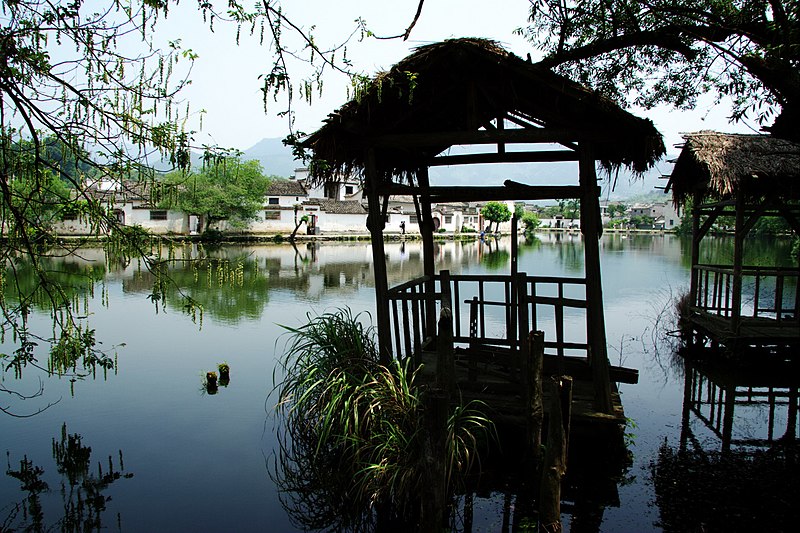
The famous Huangshan is nearby
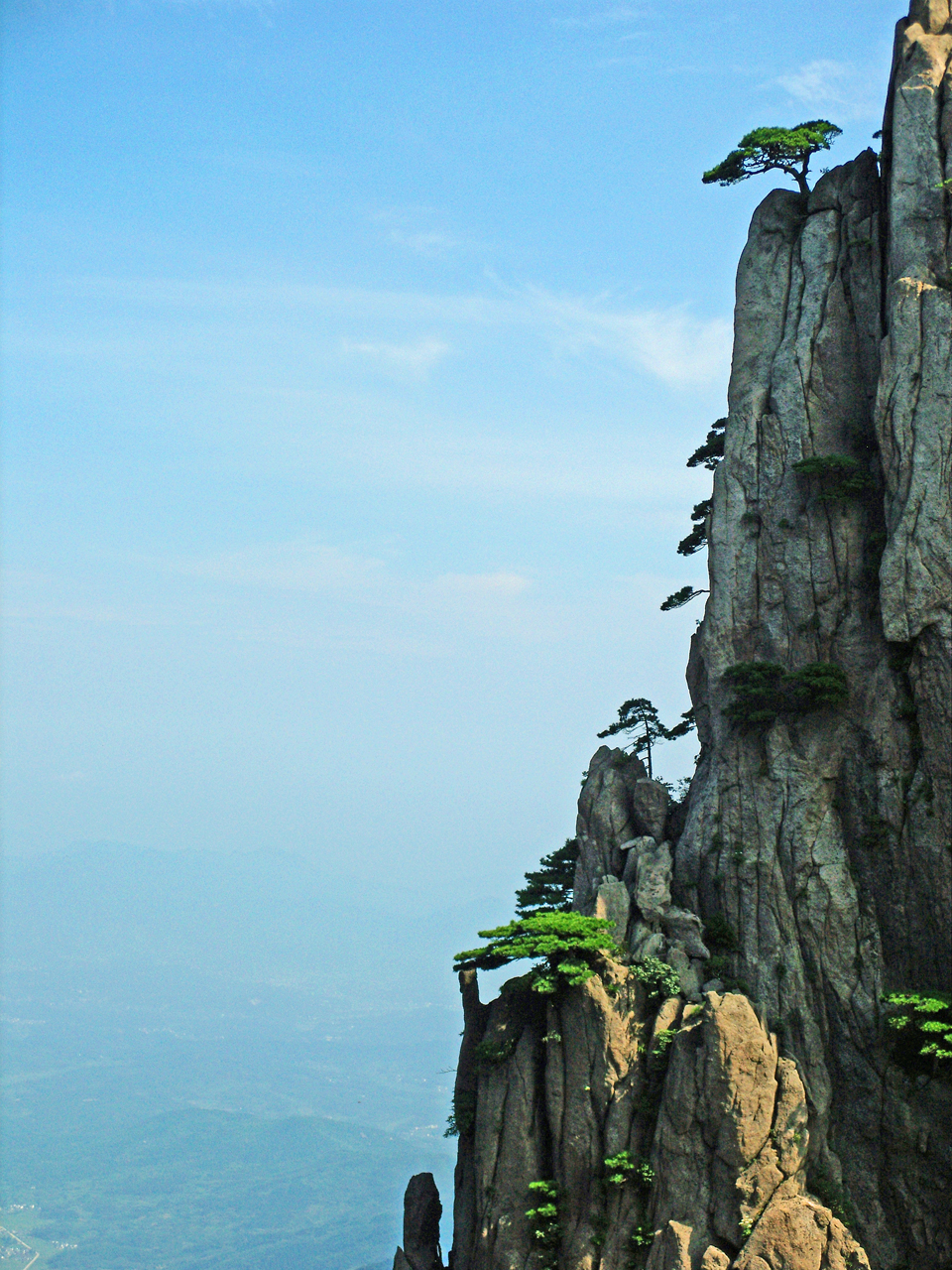
WTF! Where did you get all those inaccurate information. This Hui refers to 徽州, part of Aihui Province, which was a combination of Anqing (安庆)and Huizhou(徽州)。 It has nothing to do with Hui (回) ethnicity, two different words.
Huizhou is the heartland of southern Han culture. Look at the architecture! It is part of Yangtze River Delta sub-culture (Wuyue or Jiangnan 江南). Hui business people refer to 徽州商人, not 回族商人!In fact, Huizhou keeps best of southern Han Chinese culture in its purest form. Here you refer them to Hui ethnicity? lol
I don't know where you get information in this thread, but so many inaccuracies, especially celebrities.
This is why I really hate romanization of Chinese characters, completely two different characters have the same pronunciation and people now start using this to confuse either intentionally or unintentionally. You might as well say Koreans are Han Chinese since Korea in its native (and Chinese) language is pronounced Han (韩)too. Actually this reminds me of why some Korean nationalists start claiming all Chinese culture as theirs, since they are Han too, lol.
Honestly, I am very offended because my ancestors originated from that area.
ahfatzia
SENIOR MEMBER

- Joined
- Feb 22, 2012
- Messages
- 2,521
- Reaction score
- 0
WTF!
Honestly, I am very offended because my ancestors originated from that area.
Sorry about the post. It was simply a careless mistake on my part.
You or anybody else are welcomed to point out and correct any mistakes in proper formats. Thank You.
ahfatzia
SENIOR MEMBER

- Joined
- Feb 22, 2012
- Messages
- 2,521
- Reaction score
- 0
Tartar people 塔塔尔族
Tartar people 塔塔尔族 or the Chinese Tartar, numbered about 5,000, are an official recognized ethic group of China. The Chinese Tartars are mostly the descendents of Volga Tartar merchant traders who settled in Xinjiang China through different time period. Today they live mainly in the cities of Aletai 阿勒泰, Changji 昌吉, Yili 伊犁, Ürümqi 乌鲁木齐, Tacheng 塔城 and other places in Xinjiang.
Chinese Tatars speak an archaic variant of the Tatar language and have no written scripts. They are predominantly Muslims with some Eastern Orthodox Christianity variant.
Official portrait of a Chinese Tartar family

A Tartar family of three 1959

Two young girls 1994

A father play the accordion for the whole family 1990s

Enjoying food at home 2006

A Tartar woman serving tea to two Kazak friends 1956

A get together for Tartar from various locales 2009

Two kids and their grandpa 2000

Tartar people 塔塔尔族 or the Chinese Tartar, numbered about 5,000, are an official recognized ethic group of China. The Chinese Tartars are mostly the descendents of Volga Tartar merchant traders who settled in Xinjiang China through different time period. Today they live mainly in the cities of Aletai 阿勒泰, Changji 昌吉, Yili 伊犁, Ürümqi 乌鲁木齐, Tacheng 塔城 and other places in Xinjiang.
Chinese Tatars speak an archaic variant of the Tatar language and have no written scripts. They are predominantly Muslims with some Eastern Orthodox Christianity variant.
Official portrait of a Chinese Tartar family

A Tartar family of three 1959

Two young girls 1994

A father play the accordion for the whole family 1990s

Enjoying food at home 2006

A Tartar woman serving tea to two Kazak friends 1956

A get together for Tartar from various locales 2009

Two kids and their grandpa 2000

ahfatzia
SENIOR MEMBER

- Joined
- Feb 22, 2012
- Messages
- 2,521
- Reaction score
- 0
Tartar people 塔塔尔族
This is a traditional Tartar village although most Tartar live in major cities in western Xinjiang with other Chinese ethnic groups of this area

Some are farmers

Some are herders

Women do embroidery and other knitting works

Take care the food department

Men take care the herds

Gather woods and go to the distance bazaars

The kids are outside playing

This is a traditional Tartar village although most Tartar live in major cities in western Xinjiang with other Chinese ethnic groups of this area

Some are farmers

Some are herders

Women do embroidery and other knitting works

Take care the food department

Men take care the herds

Gather woods and go to the distance bazaars

The kids are outside playing

ahfatzia
SENIOR MEMBER

- Joined
- Feb 22, 2012
- Messages
- 2,521
- Reaction score
- 0
Tartar people 塔塔尔族
The Volga Tatars, native to the Volga-Ural region, are the largest subgroup of the Tatars. They account for roughly six out of seven million Tatars worldwide. They are in turn subdivided into various subgroups, the largest being the Kazan Tatars. The majority of Volga Tatars are Kazan Tatars. They are the majority of the population of Tatarstan, one of the constituent republics of Russia.
During the 11th-16th centuries, numerous Turkic tribes lived in what is now Russia and Kazakhstan. The present territory of Tatarstan was inhabited by the Volga Bulgars. The Bulgars settled on the Volga River in the 8th century and converted to Islam in 922 during the missionary work of Ahmad ibn Fadlan. After the Mongol invasion of Europe from 1241, Volga Bulgaria was defeated, ruined, and incorporated into the Golden Horde.
a Painting of Crimean Tartar in 19th century

A 1856 photo of Volga Tartar

Kazan Tartar

A Kazan baby

Civil weddings

Wedding without fanfares



The Volga Tatars, native to the Volga-Ural region, are the largest subgroup of the Tatars. They account for roughly six out of seven million Tatars worldwide. They are in turn subdivided into various subgroups, the largest being the Kazan Tatars. The majority of Volga Tatars are Kazan Tatars. They are the majority of the population of Tatarstan, one of the constituent republics of Russia.
During the 11th-16th centuries, numerous Turkic tribes lived in what is now Russia and Kazakhstan. The present territory of Tatarstan was inhabited by the Volga Bulgars. The Bulgars settled on the Volga River in the 8th century and converted to Islam in 922 during the missionary work of Ahmad ibn Fadlan. After the Mongol invasion of Europe from 1241, Volga Bulgaria was defeated, ruined, and incorporated into the Golden Horde.
a Painting of Crimean Tartar in 19th century

A 1856 photo of Volga Tartar

Kazan Tartar

A Kazan baby

Civil weddings

Wedding without fanfares



Similar threads
- Replies
- 138
- Views
- 7K
- Replies
- 0
- Views
- 506
- Replies
- 6
- Views
- 1K
- Replies
- 4
- Views
- 524





































































